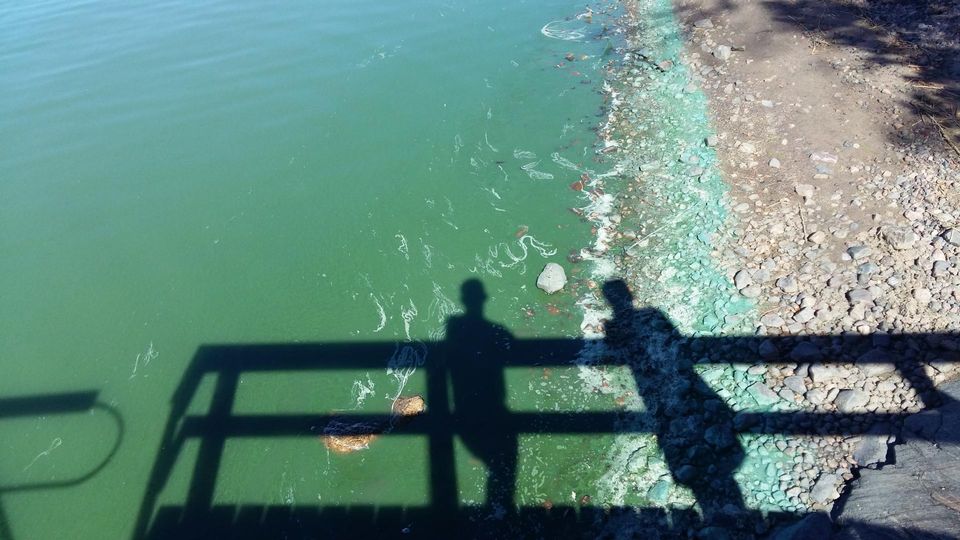Finnish researcher looks to blue-green algae for biodiesel production

One day, it may be possible to fuel vehicles with biodiesel made with blue-green algae, according to doctoral student Mikael Jämsä, who researches molecular plant biology at the University of Turku.
Jämsä extensively studied the topic for his doctoral dissertation and said that converting algae into biodiesel would also help clean wastewater.
He examined how quickly tiny algae and cyanobacteria — commonly referred to as blue-green algae — are able to bind nutrients from wastewater and how well certain types of algae are suited to produce bio fuels.
“We did this during the first stage of our research,” Jämsä said.
At the beginning of this year, the EU Commission scolded Finland over shortcomings in the country’s water conservation efforts — particularly in respect to limiting fertiliser in runoff from agricultural activity.
Increased levels of nutrients like phosphorous or nitrates either used in fertilisers or originating from poor waste treatment in farming, can accelerate plant and algae growth in bodies of water in a process called eutrophication.
Second phase
During the next phase of the study, Jämsä examined which types of wastewater was suitable for cultivation of the types of algae which are best at producing bio fuel — as well as clean up the wastewater itself.
“The best alternative we found was in municipal wastewater,” he said, explaining that the algae are removed from wastewater systems — then the algae’s fat is separated and extracted. This removed fat is then converted to fuel.
“You can use the biodiesel ‘as-is’ in things like vehicle engines,” he said.
Some of the types of algae Jämsä examined included the infamous blue-green algae which appear in varying amounts on Finland’s coastlines and waterways every summer. But the researcher said the best results for biodiesel production were found in green algae.
“The blue-green algae are not as effective as green algae because the carbohydrates in the blue-green algae are more easily converted into bio-ethanol, while the fats in green algae are more readily converted to biodiesel,” he explained.
More research needed
Similar studies on converting the fats in algae into biodiesel have been carried out around the world, including in southern Europe, the US and other countries in warmer climates.
In Finland, Jämsä said the topic has been studied by the Technical Research Centre VTT and at the Tampere University of Technology.
However despite the widespread research, Jämsä said that he’s not aware of any country which has started using algae in the production of biodiesel because of challenges involved in collecting algae and converting its fats into fuel.
“At the moment, it is not viable from an economic and energy-efficiency perspective,” he said.
However, if and when large-scale production of algae-based biodiesel does become viable, it could help end the world’s reliance on fossil fuels. But Jämsä said a good deal more research needs to be done before that happens.
Jämsä’s doctoral thesis, “Improving the efficiencies of photoautotrophic biofuel production: from biomass to biocatalysts” was published by Turku university on Monday.
Related stories from around the North:
Canada: Town in Canadian central Arctic to get hybrid solar-diesel power plant, CBC News
Finland: Finnish chemistry professor develops “revolutionary” biofuel, Yle News
Norway: The quest to turn Norway’s Arctic coast into Northern Europe’s wind power hub, The Independent Barents Observer
Russia: Italian firm to build giant wind farm in northwestern Russia, The Independent Barents Observer
Sweden: How Stockholm’s biggest solar cell complex came to be, Radio Sweden
United States: Despite winter darkness, solar power might work better in rural Alaska than you’d expect, Alaska Dispatch News



